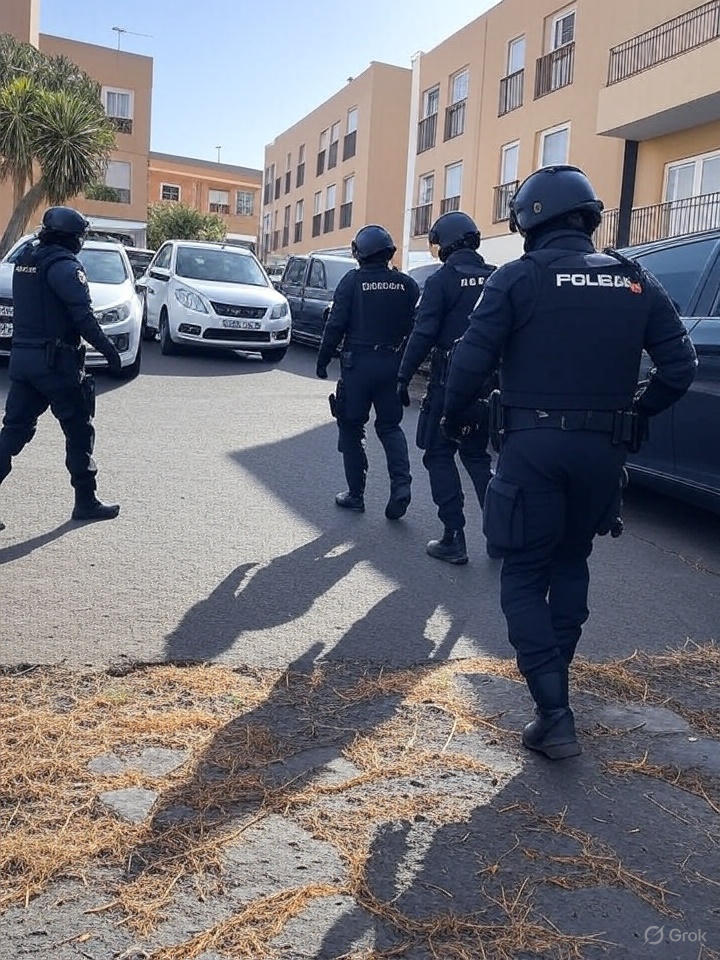Spanish authorities, in collaboration with Europol and local police forces, executed a large-scale operation targeting an organized crime group specializing in cocaine trafficking through the Canary Islands. The effort focused on the islands of Gran Canaria, Lanzarote, and Fuerteventura, where criminal networks had established sophisticated routes for importing and distributing narcotics from South America. Law enforcement conducted 29 house searches across these locations, leading to the seizure of 3.8 tonnes of cocaine, valued at millions of euros on the international market. This quantity represents one of the largest hauls in recent operations in the region, disrupting supply chains that extended to mainland Europe. In addition to the drugs, authorities confiscated 69 vehicles, including 19 boats and speedboats used for maritime smuggling, along with six properties believed to be financed through illicit proceeds. Over €100,000 in cash was also recovered, providing evidence of the financial operations supporting the network. The operation culminated in the arrest of 48 suspects, ranging from low-level couriers to high-ranking coordinators, who face charges including drug trafficking, money laundering, and association with a criminal organization. Europol’s analytical and financial expertise played a pivotal role, enabling real-time intelligence sharing and coordination among international partners. The Canary Islands have long served as a strategic gateway for transatlantic drug routes due to their geographic position, and this operation builds on previous efforts to fortify maritime borders. Spanish National Police and Civil Guard units, supported by customs officials, employed advanced surveillance techniques, including drone monitoring and undercover operations, to map the network’s activities. The seizures not only halt immediate distribution but also yield valuable data on smuggling methodologies, such as hidden compartments in vessels and coded communication systems, which will inform future preventive measures. Outcomes include a significant reduction in the local availability of cocaine, contributing to safer communities in the Canary Islands and beyond. The arrests have dismantled key nodes in the supply chain, preventing an estimated additional 2,000 kilograms of the substance from reaching European streets. Prosecutors are pursuing asset forfeiture proceedings to permanently strip the group of ill-gotten gains, ensuring that seized properties and vehicles cannot be reclaimed. This action aligns with Spain’s national strategy to combat organized crime, which emphasizes interagency cooperation and international alliances. Furthermore, the operation has strengthened ties between Europol and Spanish law enforcement, fostering ongoing joint task forces. Local officials in Gran Canaria reported a 15% drop in related petty crimes, such as thefts linked to addiction, in the weeks following the raids. The success demonstrates the effectiveness of proactive intelligence-driven policing, with plans underway to expand similar initiatives to other coastal regions. Community programs in the affected islands are receiving additional funding to support rehabilitation and prevention efforts, aiming to address root causes of drug-related issues. The collaboration extended to financial tracking, where blockchain analysis helped trace cryptocurrency transactions used to launder profits. This multifaceted approach ensures comprehensive disruption, from production to consumption. As a result, the operation serves as a model for tackling transnational crime, yielding tangible benefits like enhanced border security and economic recovery through forfeited assets redirected to public services. Spain’s commitment to these partnerships positions it as a leader in European anti-drug initiatives, promoting stability and prosperity across the continent.
www.34news.online
www.34news.online

